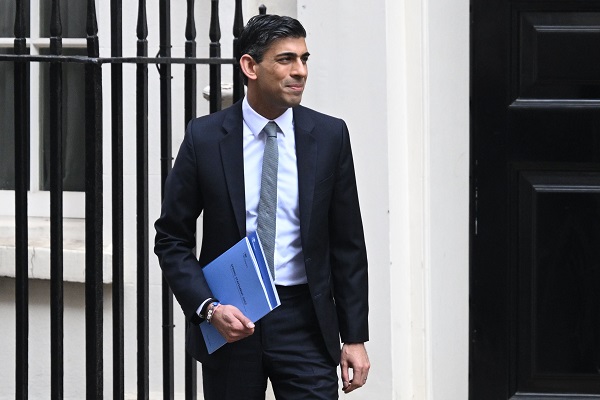Spring Statement 2022: the winners and losers
23rd March 2022 13:55
by Kyle Caldwell from interactive investor
We round up the winners and losers, explaining how the various measures will impact your wallet.

As usual, ahead of today’s Spring Statement there was plenty of speculation over the contents in chancellor Rishi Sunak’s briefcase.
There were plenty of calls for the chancellor to ease the cost of living – with households struggling with soaring inflation and high petrol prices.
Sunak delivered on this front, cutting fuel duty by 5p until next March.
He also raised the national insurance threshold to £12,570 – putting it at the same level as the the personal allowance.
However, Sunak stopped short of making other big fiscal changes – at least for now. He has pledged to cut to basic-rate income tax by 1p before the end of this parliament – 2024.
Two notable changes that take effect from the start of the new tax year in April had already been announced – the 1.25 percentage points rise in both national insurance contributions and the dividend tax. Both increases are part of a major social care overhaul.
- Spring Statement 2022: stocks to watch and share price reaction
- Inflation hits 30-year high and could rise much further
- Tips for retirees as state pension increase dwarfed by soaring living costs
- A tactic to ride out the inflation storm using these funds and trusts
As announced in last March’s Budget, personal tax thresholds will be frozen at their current levels until April 2026, with the personal allowance remaining at £12,570.
We round up the winners and losers, explaining how the various measures will impact your wallet.
Winners
Workers
The national insurance threshold will be increased from £9,880 to £12,570. The government says this will help almost 30 million working people, with a typical employee benefitting from a tax cut worth over £330 in the year from July.
Sunak said “around 70% of all workers will have their taxes cut by more than they are paying through the new levy”.
However, the coming increase in national insurance on April 6 will neutralise any gains for higher earners. Paul Johnson, of the Institute for Fiscal Studies, estimates that only people earning less than £35,000 will see a net decrease in the amount of tax they pay.
Motorists
A temporary 5p cut on petrol and diesel was announced, effective from 6pm this evening until next March. The government says thisrepresents a saving worth around £100 for the average car driver, £200 for the average van driver, and £1,500 for the average haulier
Motor insurer the RAC estimates this will cut the cost of the typical 55 litre tank of petrol by £3.
Oil and gas companies
There was speculation and calls from Labour for a windfall tax on oil and gas companies to be introduced to claw back some of the profits such companies are currently making from price spikes. However, this did not materialise.
Losers
UK economic growth
The Office for Budget Responsibility (OBR) sharply downgraded its growth forecast for the UK economy this year.
It now forecasts growth of 3.8% this year, down from 6.5% in the Autumn Budget in late October.
For 2023 onwards the OBR expects economic growth to come in at 1.8%, 2.1%, 1.8% and 1.7%.
It had previously predicted 2.1%, 1.3%, 1.7% and 1.6%.
The downgrade to economic growth has been driven by high levels of inflation, and Russia’s invasion of Ukraine. The OBR says it is too early to say what the exact impact of the war in Ukraine will be, but their “initial view” is that the UK economy will grow by 3.8% this year.
Further squeeze on cost of living
Inflation is likely to rise from its current levels. This morning the latest inflation figures for February showed inflation running at 6.2% - as measured by the consumer prices index.
Inflation, however, is set to rise even higher. The OBR expects inflation to average 7.4% this year.
Rising inflation is a blow for savers, including those with cash ISAs. While cash is less risky than the stock market, it would be a mistake to think that it is ‘risk-free’ due to the effects of inflation. When savings accounts pay below the rate of inflation, cash is eroded in real terms.
These articles are provided for information purposes only. Occasionally, an opinion about whether to buy or sell a specific investment may be provided by third parties. The content is not intended to be a personal recommendation to buy or sell any financial instrument or product, or to adopt any investment strategy as it is not provided based on an assessment of your investing knowledge and experience, your financial situation or your investment objectives. The value of your investments, and the income derived from them, may go down as well as up. You may not get back all the money that you invest. The investments referred to in this article may not be suitable for all investors, and if in doubt, an investor should seek advice from a qualified investment adviser.
Full performance can be found on the company or index summary page on the interactive investor website. Simply click on the company's or index name highlighted in the article.